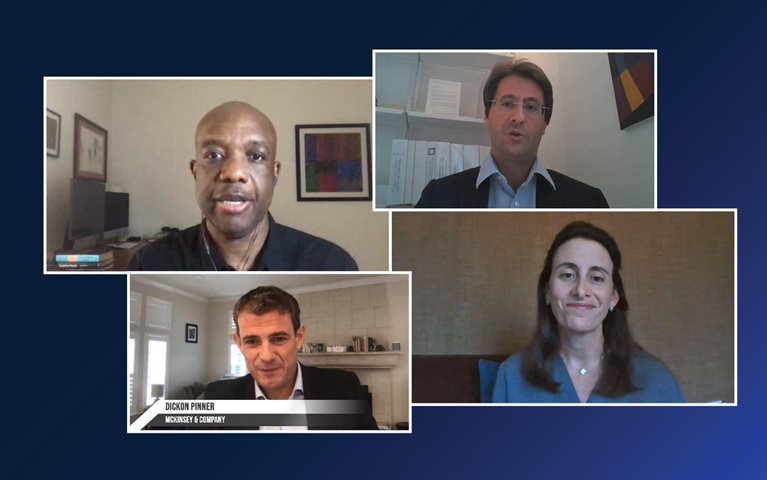Why are all leaders talking about purpose? What reskilling and retraining efforts can help close the global skills gap? And how can leaders ensure their supply chains remain resilient?
These are some of the questions discussed at the Fortune Global Forum, an annual event that brings together CEOs and other leaders in business to discuss how organizations are navigating the future. McKinsey served as knowledge partner of the event, and several of our firm’s partners joined to share insights from their client conversations as well as our recent research. Here are some of the most critical takeaways:
Activating purpose to create a shared identity
Purpose has become more than just a buzzword—it’s a top priority—for organizations during the pandemic. “There’s clearly a rising pressure to act on purpose as well as anchoring companies’ purpose into Environmental, Social, and Corporate Governance priorities to make it measurable,” said McKinsey senior partner Bruce Simpson. “COVID-19 and social equality challenges have accentuated the importance of ‘S’ in ESG. ‘S’ for our clients starts with employees and authentic engagement on their needs and perspectives. Taking care of employees takes care of customers, which takes care of business.”
Our firm’s research finds that people with a strong sense of purpose tend to be more resilient and recover better from crises. And it’s critically important for leaders to understand how to motivate and engage with their talent, according to McKinsey partner Naina Dhingra. “Our recent research found that 50 percent of employees surveyed are reconsidering the work they are doing,” she said. “We also found that employees who are able to live their purpose at work and see a clear connection between their work and individual purpose have five times higher well-being. Simply put, people who have a strong sense of purpose and feel that they can fulfill that purpose through work are doing better and these are the people who are most likely to be the ones who are going to be creative, motivated and help unlock new ideas and solutions.”
Closing the global skills gap
Before the pandemic, McKinsey Global Institute estimated 375 million workers will have to switch occupations by 2030 because of automation and AI. In a conversation that delved into the importance of reskilling and retraining as a result of the transformation accelerated by the pandemic, North America managing partner Liz Hilton Segel underscored that organizations should identify the skills their recovery business model depends on, then develop and scale tailored resources and programs to close any skills gaps among their employees. “Every organization needs now to recommit to reskilling as a competency of their organization,” said Liz. “I am surprised by how many organizations still don’t have a reskilling competency, and I’m hopeful this moment will change that.”
In addition to Generation, the independent non-profit founded by McKinsey in 2014 that works to recruit, train, and place people in jobs, our firm also partnered this year to support Talent Exchange, an online talent marketplace that aims to address the mismatch of labor supply and demand caused by COVID-19. The platform currently has more than 700,000 job opportunities across 6,000 cities throughout the US and Canada.
Stabilizing the world’s supply chains
The pandemic greatly affected global supply chains, but companies can expect to see more disruption ahead—and with greater frequency and severity. As a result, resiliency is becoming more important for boards and CEOs, according to MGI partner Susan Lund. “Our research finds that companies on average experience a 1-2 month disruption every 3.7 years, and this will wipe out over half of one year’s EBITDA every decade,” she said. Susan pointed to recent MGI research that finds leaders can expect to navigate a more disruptive, digital, and multipolar future ahead. To navigate risk, organizations will need to ensure they have transparency along the value chain—and with suppliers—and create the right set of metrics to evaluate risk.
There are multiple levers that can help companies boost resilience in the next normal. Digitizing operations end to end, for example, can improve productivity and flexibility that will be “key to creating resilience” in supply chains, said McKinsey senior partner Katy George. “One of the things I see from leaders, like those joining me on this panel today, is the acceleration of digitization of product development and across the value chain,” said Katy. “This will not only open up new resilience opportunities, but transform business models. Leading companies are using Industry 4.0 technologies—digital, analytics, automation—and seeing a measurable impact across productivity, sustainability, agility, speed to market and customization.”
